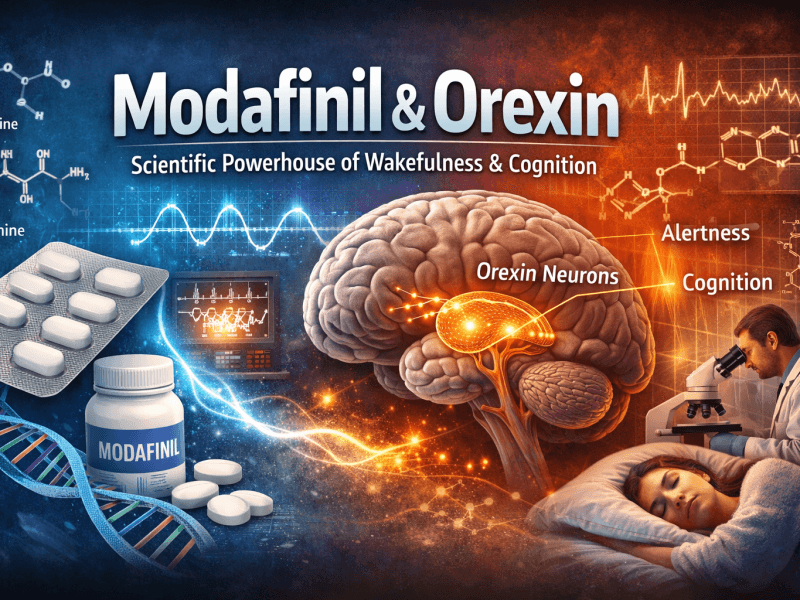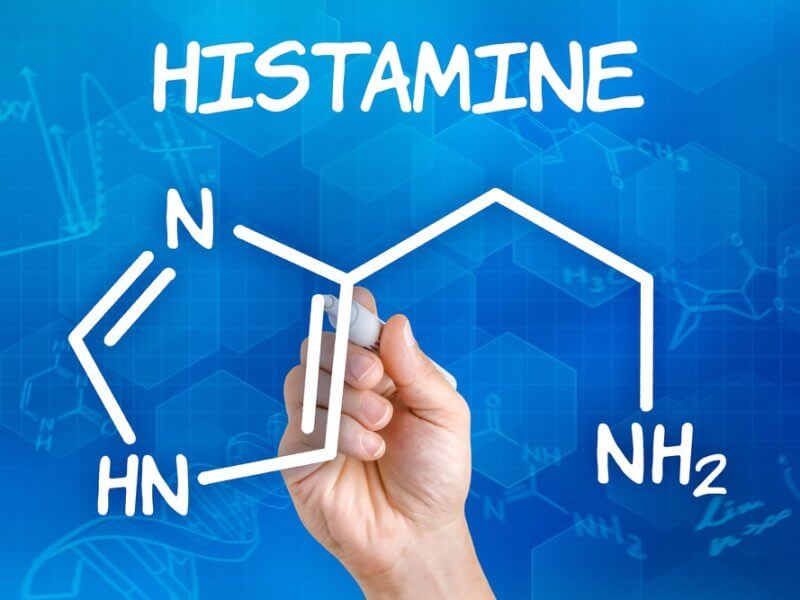What is Modafinil?
Modafinil is a prescription medication that is commonly used to treat sleep disorders such as narcolepsy, sleep apnea, and shift work sleep disorder. It is a cognitive enhancer that promotes wakefulness and alertness. By influencing certain neurotransmitters in the brain, it helps individuals stay awake and focused during the day. While it is highly effective for many users, some report feeling fatigued after taking the drug.
How Modafinil Works in the Brain
Modafinil primarily affects the hypothalamus and the dopamine system in the brain, increasing levels of norepinephrine, serotonin, and dopamine. These chemicals play a key role in regulating wakefulness, mood, and alertness. By boosting these neurotransmitters, Modafinil helps users stay alert without the jitteriness typically associated with stimulants like caffeine.
However, while Modafinil provides an increase in energy and focus initially, some individuals may experience a “crash” or fatigue once its effects wear off. This post-effects fatigue is one of the common reasons users report feeling tired after taking Modafinil.
Why Does Modafinil Cause Fatigue in Some Users?
While Modafinil is designed to promote wakefulness, some users experience fatigue after taking the drug. There are several reasons for this:
Dose-Dependent Fatigue
The amount of Modafinil you take can significantly impact how you feel afterward. Higher doses or improper use can cause an energy crash, leading to feelings of exhaustion. The body may need time to recover from the stimulation, which could lead to fatigue once the effects subside.
Individual Differences in Response
Not all bodies react to Modafinil in the same way. Some individuals have a naturally higher sensitivity to stimulants, making them more prone to feeling exhausted when the effects wear off. Genetics, age, and overall health can all play a role in how effectively Modafinil is processed in the body.
Overuse or Dependency
Frequent use of Modafinil can sometimes lead to tolerance, meaning you need higher doses to achieve the same effects. This can lead to dependency, where your body becomes reliant on the drug to maintain energy levels. When you stop taking Modafinil, the sudden lack of stimulation can cause a severe dip in energy, leading to fatigue.
Symptoms of Fatigue After Modafinil Use
Recognizing fatigue after Modafinil use is essential to understanding whether your tiredness is drug-related. The symptoms can vary:
Physical Fatigue
You may feel physically drained, with low energy or muscle weakness. Tasks that would normally be easy to complete might feel like a struggle, and your body may feel sluggish.
Mental Fatigue
Cognitive fatigue can manifest as difficulty concentrating, poor memory recall, or a lack of mental clarity. Even though Modafinil initially enhances cognitive performance, its aftereffects can leave you feeling mentally “foggy.”
How to Manage Fatigue After Taking Modafinil
There are several practical ways to manage fatigue after using Modafinil:
Adjusting the Dosage
If you find that Modafinil causes excessive fatigue, it may be worth experimenting with your dosage. Lowering the dose may help to avoid the energy crash that some users experience. Always consult with your healthcare provider before making changes to your medication regimen.
Staying Hydrated and Well-Rested
Hydration is key to maintaining energy levels. Dehydration can exacerbate fatigue, so be sure to drink plenty of water throughout the day. Additionally, ensuring that you get enough sleep is vital, as Modafinil does not replace the need for rest.
Diet and Nutrition Tips
Eating nutrient-rich foods that support energy levels can help combat fatigue. Incorporate protein, complex carbs, and healthy fats into your diet to keep your energy steady throughout the day.
Alternative Medications for Alertness
If Modafinil causes persistent fatigue, there are alternative medications that may offer similar benefits without the same side effects. Drugs like Armodafinil or even natural supplements such as caffeine or Rhodiola Rosea may be suitable substitutes. However, always consult with a healthcare professional before switching medications.
FAQ
Q1: Can I take Modafinil if I feel fatigued?
A1: While Modafinil can increase wakefulness, if you already feel fatigued, it may not be the best solution. Speak with your doctor to explore other options.
Q2: Does Modafinil cause long-term fatigue?
A2: Long-term fatigue may be related to overuse or dependency. It’s important to follow recommended dosages and not rely on Modafinil for sustained energy.
Q3: How can I prevent fatigue after taking Modafinil?
A3: To avoid fatigue, make sure you stay hydrated, eat a balanced diet, and get enough sleep. Adjusting your dosage might also help.
Q4: Can Modafinil affect sleep patterns?
A4: Yes, Modafinil can interfere with sleep, especially if taken later in the day. It’s recommended to take it early in the morning to avoid sleep disruption.
Q5: What should I do if Modafinil makes me feel tired?
A5: If you experience fatigue, consider adjusting your dosage, maintaining a healthy lifestyle, or consulting with your doctor for further guidance.
Q6: Is Modafinil addictive?
A6: Modafinil is not considered highly addictive, but overuse can lead to dependency. Use the medication as prescribed to minimize risks.
Conclusion
Fatigue after taking Modafinil is a common issue that many users experience, but it can often be managed with the right adjustments. Understanding the causes of this fatigue, such as dosage, individual responses, and potential overuse, is key to mitigating its effects. By following tips like adjusting your dose, staying hydrated, and maintaining a balanced lifestyle, you can enjoy the benefits of Modafinil without the downside of persistent tiredness.
‼️ Disclaimer: The information provided in this article about modafinil is intended for informational purposes only and is not a substitute for professional medical consultation or recommendations. The author of the article are not responsible for any errors, omissions, or actions based on the information provided.
References:
- U.S. Food and Drug Administration. PROVIGIL. U.S. Department of Health and Human Services. https://www.accessdata.fda.gov/drugsatfda_docs/label/2015/020717s037s038lbl.pdf . 2015
- Ballon JS, Feifel D. A systematic review of modafinil: potential clinical uses and mechanisms of action. J Clin Psychiatry. 2006
- Willavize, S. A., Nichols, A. I., & Lee, J. Population pharmacokinetic modeling of armodafinil and its major metabolites. https://doi.org/10.1002/jcph.800 . 2016
- Becker, P. M., Schwartz, J. R., Feldman, N. T., & Hughes, R. J. Effect of modafinil on fatigue, mood, and health-related quality of life in patients with narcolepsy. https://doi.org/10.1007/s00213-003-1508-9 . 2004
- Wirz, S., Nadstawek, J., Kühn, K. U., Vater, S., Junker, U., & Wartenberg, H. C. Modafinil zur Behandlung der Tumorfatigue: Eine Interventionsstudie [Modafinil for the treatment of cancer-related fatigue: An intervention study]. https://doi.org/10.1007/s00482-010-0987-y . 2010
- Woo, J., & Verduzco-Gutierrez, M. Traumatic brain injury: An overview of epidemiology, pathophysiology, and medical management. Medical Clinics of North America. https://doi.org/10.1016/j.mcna.2019.11.001 . 2020
- Oliva Ramirez A, Keenan A, Kalau O, Worthington E, Cohen L, Singh S. Prevalence and burden of multiple sclerosis-related fatigue: a systematic literature review. https://doi.org/10.1186/s12883-021-02396-1 . 2021.
- Ciancio A, Moretti MC, Natale A, Rodolico A, Signorelli MS, Petralia A. Personality Traits and Fatigue in Multiple Sclerosis: A Narrative Review. Journal of Clinical Medicine. https://doi.org/10.3390/jcm12134518 . 2023
- Mereu, M., Bonci, A., Newman, A. H., & Tanda, G. The neurobiology of modafinil as an enhancer of cognitive performance and a potential treatment for substance use disorders. https://doi.org/10.1007/s00213-013-3232-4 . 2013
- Greenblatt, K., & Adams, N. Modafinil. StatPearls Publishing. https://www.ncbi.nlm.nih.gov/books/NBK531476/ . 2023


